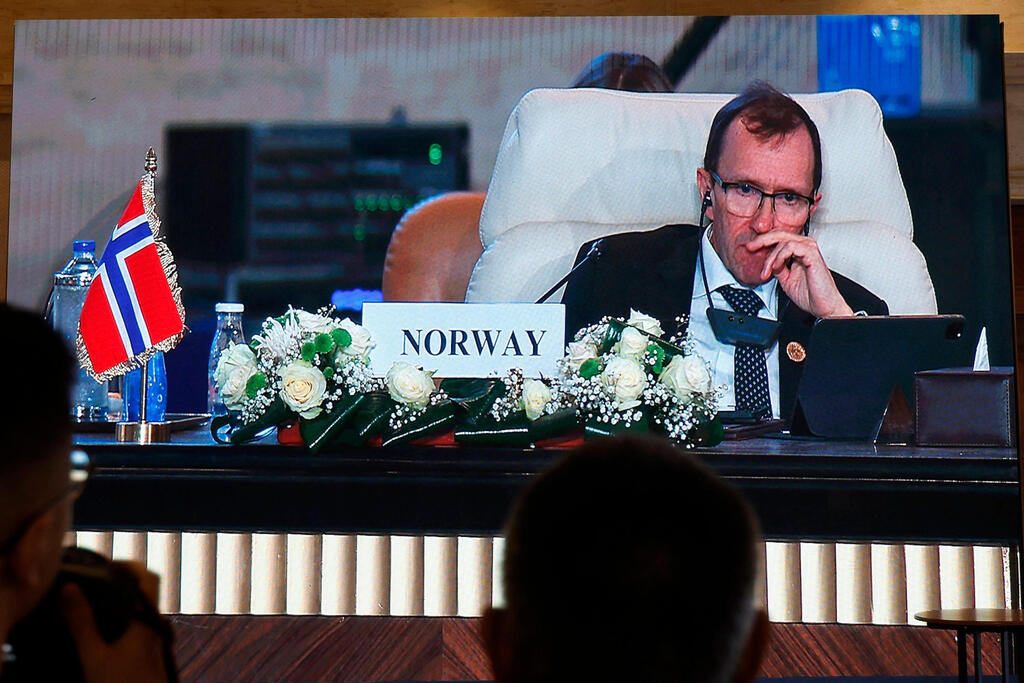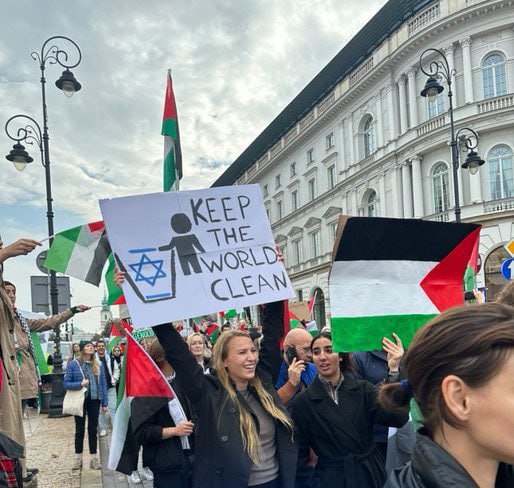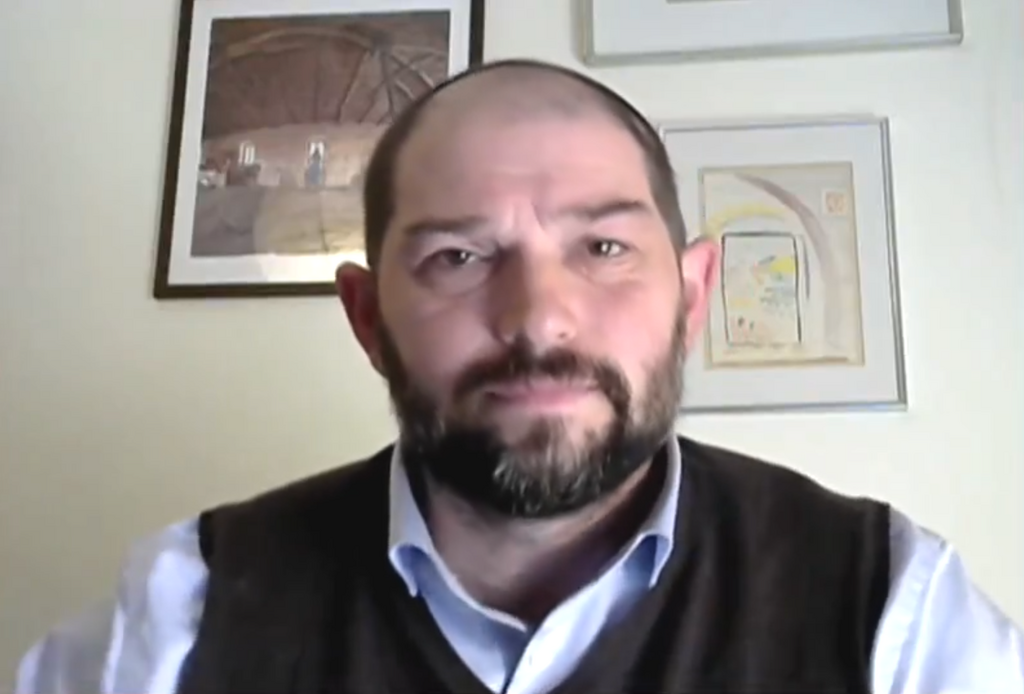Getting your Trinity Audio player ready...
Since the terror attack on October 7, Norway has become one of Israel’s most vocal opponents, with both countries currently experiencing the most severe diplomatic crisis in their history.
Read more:
In an interview with Ynet, Rabbi Joav Melchior, the chief rabbi of the Jewish community in Oslo, says that such levels of antisemitism have not been seen in the Scandinavian country since World War II.
"Unfortunately, the situation is very worrying. We are witnessing a wave of antisemitism like we haven't seen before,” Rabbi Melchior described the situation in Norway in recent months.
“The Jewish community issued a very important notice a few weeks after the attack on October 7, and there have been many meetings on the subject. We haven't seen such an aggressive wave of antisemitism since World War II – both in terms of what is being said in the media."
"It manifests in statements made against Israel, Zionists and Jews—comments that were not made in the past and would not have been accepted in public discourse without a very strong reaction."
Norwegian Foreign Minister Espen Barth Eide has recently made particularly harsh statements against Israel. At the Cairo Summit for Peace, two weeks after the outbreak of the war in Gaza, Eide was the only Western foreign minister who condemned Israel without calling for the release of hostages held in Gaza.
He compared Israel to Russia on three occasions, stating that Europe loses credibility when it does not condemn Israel for the same actions it condemns Russia for. He also blocked the king of Norway from sending a letter of condolence to Israel following the October 7 attack.
Norway has expressed support for South Africa’s petition against Israel in the International Court of Justice and refuses to recognize Hamas as a terrorist organization.
3 View gallery


Norwegian Foreign Minister Espen Barth Eide at the Cairo Summit for Peace
(Photo: Khaled DESOUKI / AFP)
"There have been specific cases of violence against Jews, both in their homes and on the street. These people claim they are not against Jews because there are Jews who criticize Israel. It's as if it's the anti-Israel movement's alibi to say they are not antisemitic," Rabbi Melchior said.
"We in the Jewish community argue that it is antisemitic because we see the wild exaggeration in what people allow themselves to say, the level of hatred in the discourse. Therefore, we argue that it is antisemitic."
Nevertheless, Rabbi Melchior says that Norway remains “one of the safest places for Jews” and “the people, except in very specific cases, are not violent toward Jews."
Rabbi Melchior says that Oslo’s refusal to recognize Hamas as a terrorist organization stems from its with “to be in dialogue with everyone.”
The government in Norway did define [Hamas as a terrorist group], and the prime minister called Hamas a terrorist organization. However, they did not place them on the terrorist organizations list, which would prohibit any contact with them."
According to the rabbi, Norway argues that by not labeling Hamas as a terrorist organization, it allows it to maintain contact with the group, partly to facilitate the release of hostages.
3 View gallery


Norwegian student flies anti-Israel sign during pro-Palestinian rally in Warsaw, Poland
Rabbi Melchior says that about 2,000 Jews currently reside in Norway, but some are considering leaving the country.
"Many friends in the Jewish community explicitly say they are contemplating whether they want to continue living in Norway, especially after the recent period," he said.
However, he said that he believes that Jews should not make Aliyah due to antisemitism but rather “out of Zionism, a connection to the Jewish people, and the desire to live in the Land of Israel, which is what we educate toward.”
Rabbi Melchior also highlighted the effects of Muslim immigration on Norway, noting an increase in antisemitism and hostility toward Israel among the Muslim population.
"The demographic change definitely has an impact. In this specific case, there's much more hatred toward the State of Israel, and to a significant extent, antisemitism, among the Muslim population,” he said.
“It's important to note that we are also in dialogue with Muslims who want to build a different future for both Muslims and Jews in Europe, and are interested in a different discourse regarding the State of Israel. Unfortunately, these voices have been in the minority in recent months."



